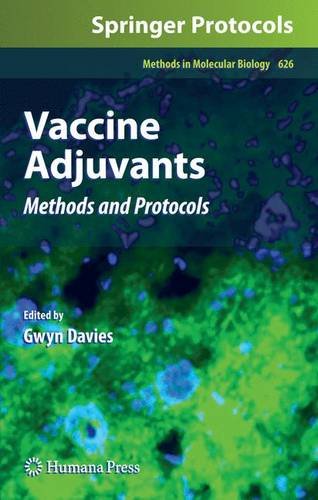

Most ebook files are in PDF format, so you can easily read them using various software such as Foxit Reader or directly on the Google Chrome browser.
Some ebook files are released by publishers in other formats such as .awz, .mobi, .epub, .fb2, etc. You may need to install specific software to read these formats on mobile/PC, such as Calibre.
Please read the tutorial at this link. https://ebooknice.com/page/post?id=faq
We offer FREE conversion to the popular formats you request; however, this may take some time. Therefore, right after payment, please email us, and we will try to provide the service as quickly as possible.
For some exceptional file formats or broken links (if any), please refrain from opening any disputes. Instead, email us first, and we will try to assist within a maximum of 6 hours.
EbookNice Team

Status:
Available0.0
0 reviewsSpanning from discoveries in fundamental immunology to industrial and commercial concerns, the study of vaccine adjuvants has developed into an exciting area of work with great, vital potential in innovating techniques in which adjuvants may steer the immune system towards the responses required by unmet vaccination needs. In Vaccine Adjuvants: Methods and Protocols, expert researchers in the field provide clear and concise guidance on how to go about assessing the activity of adjuvant products. Rather than describing individual adjuvants, the volume strives to include detailed, practical information on measuring the responses produced by adjuvants in order to be relevant to the widest array of experiments. Written in the highly successful Methods in Molecular Biology™ series format, chapters include introductions to their respective topics, lists of the necessary materials and reagents, step-by-step, readily reproducible laboratory protocols, and notes on troubleshooting and avoiding known pitfalls.
Authoritative and versatile, Vaccine Adjuvants: Methods and Protocols will enable those already pursuing vaccine adjuvant research, while also serving to stimulate discussion on how to best standardize adjuvant testing in order to facilitate meaningful comparisons, and above all, to aid in the prediction of which new products will most effectively and safely help to solve the current challenges in vaccination.